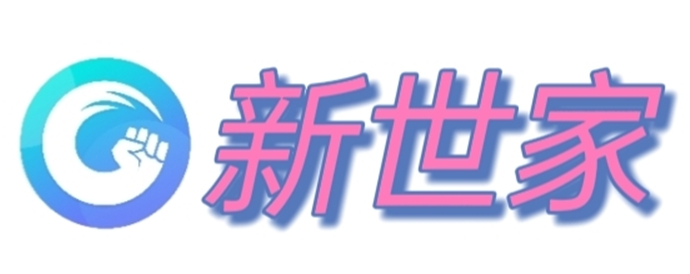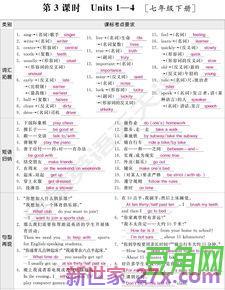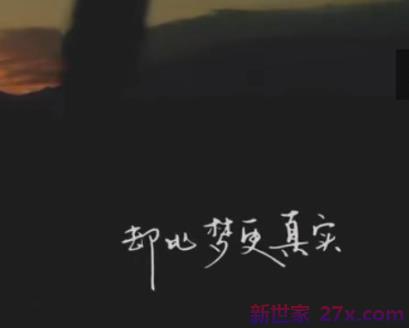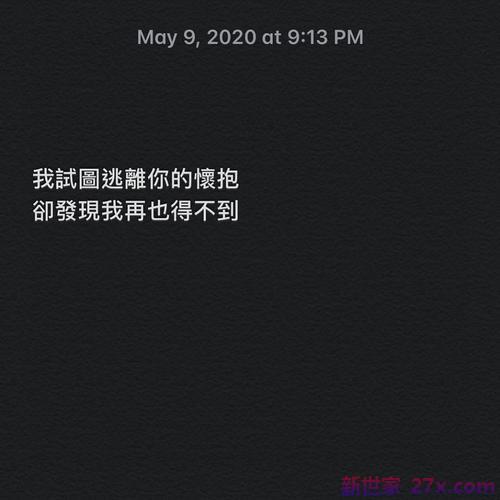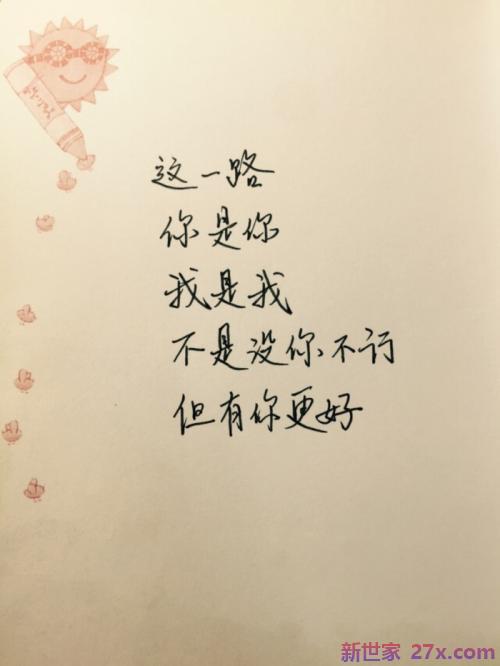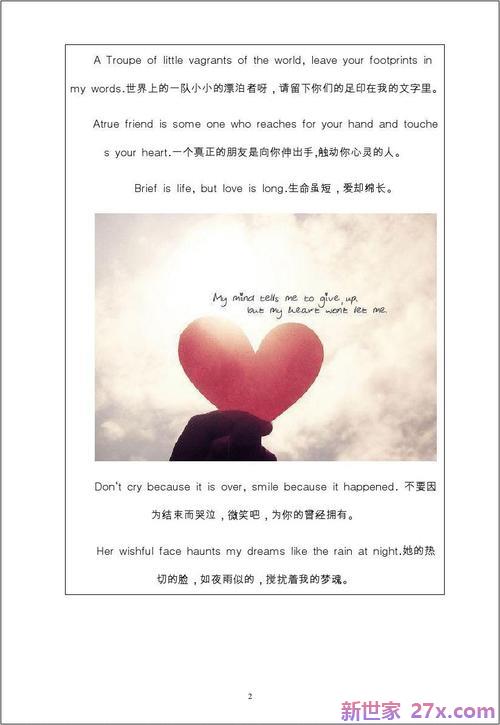|
微信分身24小时自助商城:
微信分身24小时自助商场:
微信分身24小时自助商场: |
1.初中英语单词句子大全,越多越好
11. 动词的时态 11.1 一般现在时的用法 1) 经常性或习惯性的动作,常与表示频腮度的时间状语连用。
时间状语: every…, sometimes, at…, on Sunday。例如: I leave home for school at 7 every morning. 每天早上我七点离开家。
2) 客观真理,客观存在,科学事实。例如: The earth moves around the sun. 地球绕太阳转动。
Shanghai lies in the east of China. 上海位于中国东部。 3) 表示格言或警句。
例如: Pride goes before a fall. 骄者必败。 注意:此用法如果出现在宾语从句中,即使主句是过去时,从句谓语也要用一般现在时。
例:Columbus proved that the earth is round. 哥伦布证实了地球是圆的。 4) 现在时刻的状态、能力、性格、个性。
例如: I don't want so much. 我不要那么多。 Ann writes good English but does not speak well. 安英语写得不错,讲的可不行。
比较:Now I put the sugar in the cup. 把糖放入杯子。 I am doing my homework now. 我正在做功课。
第一句用一般现在时,用于操作演示或指导说明的示范性动作,表示言行的瞬间动作。第二句中的now是进行时的标志,表示正在进行的动作的客观状况,所以后句用一般现在时。
返回动词的时态目录 11.2 一般过去时的用法 1)在确定的过去时间里所发生的动作或存在的状态。例如:时间状语有:yesterday, last week, an hour ago, the other day, in 1982等。
例如: Where did you go just now? 刚才你上哪儿去了? 2)表示在过去一段时间内,经常性或习惯性的动作。例如: When I was a child, I often played football in the street. 我是个孩子的时候,常在马路上踢足球。
Whenever the Browns went during their visit, they were given a warm welcome. 那时,布朗一家无论什么时候去,都受到热烈欢迎。 3)句型:It is time for sb. to do sth "到……时间了" "该……了"。
例如:It is time for you to go to bed. 你该睡觉了。 It is time that sb. did sth. "时间已迟了" "早该……了" ,例如It is time you went to bed. 你早该睡觉了。
would (had) rather sb. did sth. 表示'宁愿某人做某事'。例如:I'd rather you came tomorrow.还是明天来吧。
4) wish, wonder, think, hope 等用过去时,作试探性的询问、请求、建议等,而一般过去时表示的动作或状态都已成为过去,现已不复存在。例如:I thought you might have some. 我以为你想要一些。
比较:Christine was an invalid all her life.(含义:她已不在人间。) Christine has been an invalid all her life.(含义:她现在还活着) Mrs. Darby lived in Kentucky for seven years. (含义:达比太太已不再住在肯塔基州。)
Mrs. Darby has lived in Kentucky for seven years. (含义:现在还住在肯塔基州,有可能指刚离去) 注意: 用过去时表示现在,表示委婉语气。 1)动词want, hope, wonder, think, intend 等。
例如: Did you want anything else? 您还要些什么吗? I wondered if you could help me. 能不能帮我一下。 2)情态动词 could, would。
例如: Could you lend me your bike? 你的自行车,能借用一些吗? 返回动词的时态目录 11.3 used to / be used to used to + do:"过去常常"表示过去习惯性的动作或状态,但如今已不存在。例如: Mother used not to be so forgetful. 老妈过去没那么健忘。
Scarf used to take a walk. 斯卡夫过去常常散步。 be used to + doing: 对……已感到习惯,或"习惯于",to是介词,后需加名词或动名词。
例如: He is used to a vegetarian diet. Scarf is used to taking a walk. 斯卡夫现在已习惯于散步了。 典型例题 ---- Your phone number again? I ___ quite catch it. ---- It's 69568442. A. didn't B. couldn't C. don't D. can't 答案A. 本句虽没有明确的时间状语,但从语意上看出,在听的时候没有听懂这个动作发生在过去,因此应用过去时。
返回动词的时态目录 11.4 一般将来时 1) shall用于第一人称,常被will 所代替。will 在陈述句中用于各人称,在征求意见时常用于第二人称。
例如: Which paragraph shall I read first? 我先读哪一段呢? Will you be at home at seven this evening? 今晚七点回家好吗? 2) be going to +不定式,表示将来。 a. 主语的意图,即将做某事。
例如:What are you going to do tomorrow? 明天打算作什么呢? b. 计划,安排要发生的事。例如:The play is going to be produced next month。
这出戏下月开播。 c. 有迹象要发生的事。
例如:Look at the dark clouds, there is going to be a storm. 看那乌云,快要下雨了。 3) be +不定式表将来,按计划或正式安排将发生的事。
例如: We are to discuss the report next Saturday.我们下星期六讨论这份报告。 4) be about to +不定式,意为马上做某事。
例如: He is about to leave for Beijing. 他马上要去北京。 注意:be about to do 不能与tomorrow, next week 等表示明确将来时的时间状语连用。
返回动词的时态目录 11.5 be going to / will 用于条件句时,be going to表将来,will表意愿。例如: If you are going to make a journey, you'd better get ready for it as soon as possible. Now if you will take off your clothes, we will fit the new clothes 。
2.谁能帮我总结几个英语单词句子呀
个人品质词汇:able 有才干的,能干的 active 主动的,活跃的 adaptable 适应性强的 adroit 灵巧的,机敏的 aggressive 有进取心的 alert 机灵的 ambitious 有雄心壮志的 amiable 和蔼可亲的 amicable 友好的 analytical 善于分析的 apprehensive 有理解力的 aspiring 有志气的,有抱负的 audacious 大胆的,有冒险精神的 capable 有能力的,有才能的 careful 办事仔细的 candid 正直的 charitable 宽厚的 competent 能胜任的 confident 有信心的 conscientious 认真的,自觉的 considerate 体贴的 constructive 建设性的 contemplative 好沉思的 cooperative 有合作精神的 creative 富创造力的 dashing 有一股子冲劲的,有拼搏精神的 dedicated 有奉献精神的 devoted 有献身精神的 dependable 可靠的 diplomatic 老练的,有策略的 disciplined 守纪律的 discreet (在行动,说话等方面)谨慎的 dutiful 尽职的 dynamic 精悍的 earnest 认真的 well-educated 受过良好教育的 efficient 有效率的 energetic 精力充沛的 enthusiastic 充满热情的 expressive 善于表达faithful 守信的,忠诚的forceful (性格)坚强的frank 直率的,真诚的friendly 友好的frugal 俭朴的generous 宽宏大量的genteel 有教养的gentle 有礼貌的hard-working 勤劳的hearty 精神饱满的honest 诚实的hospitable 殷勤的 humble 恭顺的 humorous 幽默的 impartial 公正的 independent 有主见的 industrious 勤奋的 ingenious 有独创性的 initiative 首创精神 have an inquiring mind 爱动脑筋 intellective 有智力的 intelligent 理解力强的 inventive 有发明才能有创造力的 just 正直的 kind-hearted 好心的 knowledgeable 有见识的 learned 精通某门学问的 liberal 心胸宽大的 logical 条理分明的 loyal 忠心耿耿的 methodical 有方法的 modest 谦虚的 motivated 目的明确的 objective 客观的 open-minded 虚心的 orderly 守纪律的 original 有独创性的 painstaking 辛勤的,苦干的,刻苦的 practical 实际的 precise 一丝不苟的 persevering 不屈不挠的 punctual 严守时刻的 purposeful 意志坚强的 qualified 合格的 rational 有理性的 realistic 实事求是的 reasonable 讲道理的 reliable 可信赖的 responsible 负责的 self-conscious 自觉的 selfless 无私的 sensible 明白事理的 sincere 真诚的 smart 精明的 spirited 生气勃勃的 sporting 光明正大的 steady 塌实的 straightforward 老实的 strict 严格的 systematic 有系统的 strong-willed 意志坚强的 sweet-tempered 性情温和的 temperate 稳健的 tireless 孜孜不倦的。
3.高中英语单词、短语、总结,要全面点
我只是教你方法 积累什么的 自己去做吧 对症下药才是好的。 准备一本很厚本子 英语靠两样 一是单词 二是语法。 本子目录做好分类 标好页码 一 不认识的单词 二 易混淆的单词 三 单次单复数 四 单词的过去式过去分词 单词一定要翻来覆去背 单词是主干
语法也是这样 目录分类好几种语法 标好页码 。 一种语法对应语法中的要点 和错题 注重积累。虽然高三后面会发参考书之类的 但是 自己有精力自己做 这样才会印象深刻。
关于短语 积累那种 一个词组有很多意思 几个词组是相同意思 不会的词组。
如果你真的不愿意做 可以买参考书 单词短语的归纳一定是有的 高三也会给你发这种书的。
但是我想和你说 自己做加上不断的背诵 才是最好的。
4.比较潮的英语单词短语
Thousand times no! 绝对办不到! Easy does it. 慢慢来。
Don't push me. 别逼我。 Have a good of it.玩的很高兴。
What is the fuss? 吵什么? Still up? 还没睡呀? It doesn't make any differences. 没关系。 Don't let me down. 别让我失望。
God works. 上帝的安排。 Don't take ill of me. 别生我气。
Does it serve your purpose? 对你有用吗? Don't flatter me. 过奖了。 Big mouth! 多嘴驴! Sure thing! 当然! I''m going to go. 我这就去。
Never mind. 不要紧。 Can-do. 能人。
Close-up. 特写镜头。 Drop it! 停止! Bottle it! 闭嘴! Don''t play possum! 别装蒜! There is nobody by that name working here.这里没有这个人。
Break the rules. 反规则。 How big of you! 你真棒! Poor thing! 真可怜! Nuts! 呸;胡说;混蛋 Make it up! 不记前嫌! Watch your mouth. 注意言辞。
Any urgent thing? 有急事吗? Don't over do it. 别太过分了。 Can you dig it? 你搞明白了吗? You want a bet? 你想打赌吗? What if I go for you? 我替你去怎么样? Who wants? 谁稀罕? Follow my nose. 凭直觉做某事。
Gild the lily. 画蛇添足。 I'll be seeing you. 再见。
I wonder if you can give me a lift? 能让我搭一程吗? I might hear a pin drop. 非常寂静。 Why are you so sure? 怎么这样肯定? Is that so? 是这样吗? Don't get loaded. 别喝醉了。
Don't get high hat. 别摆架子。 Right over there. 就在那里。
Doggy bag. 打包袋。 That rings a bell. 听起来耳熟。
Sleeping on both ears. 睡的香。 Play hooky. 旷工、旷课。
I am the one wearing pants in the house. 我当家. It's up in the air. 尚未确定。 I am all ears. 我洗耳恭听。
Get cold feet. 害怕做某事。 Good for you! 好得很! Help me out. 帮帮我。
Let's bag it. 先把它搁一边。 Lose head. 丧失理智。
Talk truly. 有话直说。 He is the pain on neck. 他真让人讨厌。
You bet! 一定,当然! That is a boy! 太好了,好极了! It's up to you. 由你决定。 The line is engaged. 占线。
My hands are full right now. 我现在很忙。 Don't make up a story. 不要捏造事实。
Absence makes the heart grow fonder. 小别胜新婚。 She make a mess of things. 她把事情搞得一塌糊涂。
Get an eyeful. 看个够。 He has a quick eye. 他的眼睛很锐利。
Shoot the breeze. 闲谈。 Tell me when! 随时奉陪! Let's play it by ear. 让我们随兴所至。
Why so blue? 怎么垂头丧气? What brought you here? 什么风把你吹来了? Chin up. 不气 ,振作些。 You never know. 世事难料。
High jack! 举起手来(抢劫)! She'll be along in a few minutes. 他马上会过来。 He is a fast talker. 他是个吹牛大王。
I'll get even with him one day. 我总有一天跟他扯平 She's got quite a wad. 她身怀巨款。 I don't have anywhere to be. 没地方可去。
I'm dying to see you. 我很想见你。 Nothing tricky. 别耍花招。
Price is soaring, if it goes on like this, we shall not be able to keep the pot boiling. 物价直线上升,这样子下去,我们锅里可没什么东西煮饭。 None of you keyhole. 不准偷看。
Come on, be reasonable. 嗨,你怎么不讲道理。 You don't say so. 未必吧,不至于这样吧。
Don't get me wrong. 别误会我。 You don't seem to be quite yourself today. 你今天看起来不大对劲。
Do you have any money on you? 你身上带钱了吗? Dinner is on me. 晚饭我请。 Not precisely! 不见得,不一定! We have no way out. 我们没办法。
I hate to be late and keep my date waiting. 我不喜欢迟到而让别人久等。 It doesn't take much of you time. 这不花你好多时间。
Not in the long run. 从长远来说不是这样的。 It is of high quality. 它质量上乘。
He pushes his luck. 他太贪心了。 I can't make both ends meet. 我上个月接不到下个月,缺钱。
It can be a killer. 这是个伤脑筋的问题。 You ask for it! 活该! 英语口语中好用的四词短句 Are you by yourself? 你一个人来吗? Are you kidding me? 跟我开玩笑啊? Back in a moment! 马上回来! Boys will be boys! 本性难移! Come to the point! 有话直说! Do I have to? 我一定要做吗? Don't count on me! 别指望我! Don't fall for it! 别上当! Don't get me wrong! 你搞错了! Don't give me that! 少来这套! Don't let me down! 别让我失望! Don't over do it! 别做过头了! Drop me a line!要写信给我! Easy come easy go! 来得容易去也快! Get a move on! 快点吧! Give me a break! 饶了我吧! Glad you like it! 很高兴你喜欢! Great minds think alike! 英雄所见略同! He always talks big! 他老是吹牛! He's a double crosser! 他是个骗子! I cross my heart! 我发誓是真的! I just made it! 我做到了! I watch my money! 视财如命! I'll be right back! 我马上回来! I'll check it out! 我去查查看! I'll see to it! 我会留意的! I'm down and out! 我穷困潦倒! I'm in a hurry! 我赶时间! I'm not that bad! 我没那么差吧? I'm short on cash! 我缺钱! I've got the 。
5.人教版小学英语3
人教版小学英语单词分类学习1学习用品(school things) pen钢笔 pencil铅笔 pencil case铅笔盒 rule尺子 book书 bag包 comic book漫画书post card 明信片newspaper报纸 schoolbag书包 eraser橡皮 crayon蜡笔 sharpener卷笔刀 story book故事书 notebook笔记本 Chinese book语文书 English book英语书 math book数学书 magazine杂志 dictionary词典 2人体(body) foot脚 head头 face脸 hair头发 nose鼻子 mouth嘴 eye眼睛 ear耳朵 arm手臂 hand手 finger手指 leg腿 3颜色(colours) red红 blue蓝 yellow黄 green绿 white白 black黑 pink粉红 purple紫 orange橙 brown棕 4动物(animals) cat猫 dog狗 pig猪 duck鸭 rabbit兔 horse马 elephant大象 ant蚂蚁 fish鱼 bird鸟 eagle鹰 beaver海狸 snake蛇 mouse老鼠 squirrel松鼠 kangaroo袋鼠 monkey猴 panda熊猫 bear熊 lion狮子 tiger老虎 fox狐狸 zebra斑马 deer鹿 giraffe长颈鹿 goosr鹅 hen母鸡 turkey火鸡 lamb小羊 sheep绵羊 goat山羊 cow奶牛 donkey驴 squid鱿鱼 lobster龙虾 shark鲨鱼 seal海豹 sperm whale抹香鲸 killer whale虎鲸 5人物(people) friend朋友 boy男孩 girl女孩 mother母亲 father父亲 sister姐妹 brother兄弟 uncle叔叔;舅舅 man男人 woman女人 Mr.先生 Miss.小姐 lady女士;小姐 mom妈妈 dad爸爸 parents父母grandma/grandmother(外)祖母 grandpa/grandfather(外)祖父 aunt姑姑;舅母 cousin堂(表)兄弟;堂(表)姐妹 son儿子 daughter女儿 baby婴儿 kid小孩 classmate同学 queen女王 visitor参观者 neighbour邻居 principal校长 pen pal笔友 tourist旅行者 people人物 rober机器人 6职业(jobs) teacher教师 student学生 doctor医生 nurse护士 driver司机 farmer农民 singer歌唱家writer作家 actor男演员 actress女演员 artist画家 TV reporter电视台记者 engineer工程师 accountant会计 policeman(男)警察 saleperson销售员 cleaner清洁工 baseball player棒球运动员 assistant售货员 7食品 饮料(food&drink) rice米饭 bread面包 beef牛肉 milk牛奶 water水 egg蛋 fish鱼 tofu豆腐 cake蛋糕hot dog热狗 hamburger汉堡包 French fries炸薯条 cookie曲奇饼 biscuit饼干 jam果酱coodles面条 meat肉 chicken鸡肉 pork猪肉 mutton羊肉 vegetable蔬菜 salad沙拉 soup汤 ice冰 ice-crean冰淇淋 Coke可乐 juice果汁 tea茶 coffee咖啡 breakfast早餐lunch午餐 supper晚餐 dinner正餐 8水果 蔬菜(fruit&vegetables) apple苹果 banana香蕉 pear梨 orange橙 watermelon西瓜 grape葡萄 eggplant茄子green beans青豆 tomato西红柿 potato土豆 peach桃 strawberry草莓 cucmber黄瓜 onion洋葱 carrot胡萝卜 cabbage卷心菜 9衣服(clothes) jacket夹克衫 shirt衬衫 T-shirtT恤衫 skirt短裙子 dress连衣裙 jeans牛仔裤 pants长裤 socks袜子 shoes鞋子 sweater毛衣 coat上衣 raincoat雨衣 shorts短裤 sneakers运动鞋 slippers拖鞋 sandals凉鞋 boots靴子 hat(有沿的)帽子 cap便帽 tei领带 scarf围巾 gloves手套 10交通工具(vehicles) bike自行车 bus公共汽车 train火车 boat小船 ship轮船 yacht快艇 car小汽车 taxi出租车 jeep吉普车 van小货车;面包车 plane飞机 subway地铁 motorcycle摩托车 11杂物(other things) window窗户 door门 desk课桌 chair椅子 bed床 computer计算机 board木板 fan风扇 light灯 teachdr's desk讲台 picture图画;照片 wall墙壁 floor地板 curtain窗帘 trash can垃圾箱 closet壁橱 mirror镜子 football足球 present礼物 walkman随身听 lamp台灯 phone电话 sofa沙发 shelf书架 fridge冰箱 table桌子 TV电视 air-conditioner空调 key钥匙 lock锁 photo照片 chart图表 plate盘子 knife刀 fork叉 spoon勺子 chopsticks筷子 pot锅 gift礼物 toy玩具doll洋娃娃 ball球 balloon气球 kite风筝 jigsaw puzzle拼图游戏 box盒子 umbrella伞 zipper拉链 violin小提琴 yo-yo溜溜球 nest鸟窝 hole洞 tube管子 toothbrush牙刷 menu菜单 e-card电子卡片 e-mail电子邮件 traffic light交通灯 money钱 medicine药 sunglasses太阳镜 12地点(locations) home家 room房间 bedroom卧室 bathroom卫生间 living room起居定 kitchen厨房 classroom教室 school学校 park 公园 library图书馆 post office邮局 hospital医院 cineama电影院 bookstore书店 farm农场 zoo动物园 garden花园 study书房 playground操场 canteen食堂 teacher's office教师办公室 gym体育馆 wsahroom卫生间 art room绘画教室 computer room计算机教室 music room音乐教室 Tv room电视机房 flat 公寓 company公司 factory 工厂 fruit stand水果摊 pet shop 宠物商店 nature park 自然公园 theme park主题公园 science museum科学博物馆 the Great Wall长城 supermarket 超市 bank银行 country国家 village乡村 city城市 13课程(courses) sports体育运动 science科学 Moral Education思想品德课 Social Strudies社会课 14国家 城市 (countries&cities) China/PRC中国 America/USA美国 UK联合王国 England英国 Canada加拿大 Australia澳大利亚 New York纽约 London伦敦 Sydney悉尼 Moscow莫斯科 Cairo开罗 15气象() cold寒冷的 warm温暖的 cool凉爽。
6.英语单词短语语法句子
一. 词汇 ⑴ 单词 1. 介词:in, on, under, behind, near, at, of 1). in表示"在……中", "在……内"。
例如: in our class 在我们班上 in my bag 在我的书包里 in the desk 在桌子里 in the classroom 在教室里 2). on 表示"在……上"。例如: on the wall 在墙上 on the desk 在桌子上 on the blackboard 在黑板上 3). under表示"在……下"。
例如: under the tree 在树下 under the chair 在椅子下 under the bed 在床下 4). behind表示"在……后面"。例如: behind the door 在门后 behind the tree 在树后 5). near表示"在……附近"。
例如: near the teacher's desk 在讲桌附近 near the bed 在床附近 6). at表示"在……处"。例如: at school 在学校 at home 在家 at the door 在门口 7). of 表示"……的"。
例如: a picture of our classroom 我们教室的一幅画 a map of China 一张中国地图 2. 冠词 a / an / the: 冠词一般位于所限定的名词前,用来署名名词所指的人或事物。冠词有不定冠词和定冠词两种。
不定冠词有两个形式,即a和an。a用在以辅音音素开头的词前,如a book; an用在以元音音素开头的字母前,如an apple. a或an与可数名词单数连用,泛指某类人或某物中的一个。
This is a cat. 这是一只猫。 It's an English book. 这是一本英语书。
His father is a worker. 他的爸爸是个工人。 the既可以用在可数名词前,也可以用在不可数名词前,表示某个或某些特定的人或事物,也可以指上文提到过的人或事物。
Who's the boy in the hat? 戴帽子的男孩是谁呀? ------ What can you see in the classroom? ------ I can see a bag. ------ Where's the bag? ------ It's on the desk. ------- 你能在教室里看到什么呀? ------ 我能看见一个书包。 ------ 书包在哪呀? ------ 在桌子上。
3.some和any ①在肯定句中用some.例如: There are some books on the desk.桌子上有一些书。 Lucy has some good books露西有一些好书。
②在疑问句和否定句中用any。例如: Is there any ink in your pen?你的钢笔里有墨水吗? Do you have any brothers and sisters?你有兄弟姐妹吗? There isn't any water in the glass.杯子里没有水。
⑵记住它们的特殊用法。 ①some亦可用于表示盼望得到对方肯定的答复或表示建议、委婉请求的疑问句中,这一点我们不久就会学到。
例如: Would you like to have some apples?你想吃苹果吗? ②any也可用于肯定句中,表示"任何的"。例如: Any one of us can do this.我们当中任何一个都能做这个。
some 和any的用法是经常出现的考点,希望大家能准确地掌握它们的用法。 4.family family看作为一个整体时,意思是"家庭",后面的谓语动词be用单数形式 is ;如把family看作为家庭成员时,应理解为复数,后面的谓语动词be应用are。
My family is a big family. 我的家庭是个大家庭。 My family are all at home now. 我的家人现在都在家。
Family强调由家人组成的一个集体或强调这个集体中的成员。home指个人出生、被抚养长大的环境和居住地点。
house指"家"、"房屋",侧重居住的建筑本身。 His family are all workers. 他的家人都是工人。
My home is in Beijing. 我的家在北京。 He isn't at home now. 他现在不在家。
It's a picture of my family. 这是一张我全家的照片。 5. little的用法 a little dog 一只小狗,a little boy 一个小男孩。
little常用来修饰有生命的名词。 *但little还可表示否定意义,意为"少的",加不可数名词。
There is little time. 几乎没时间了。 There is little water in the cup. 杯中水很少。
⑵ 词组 on the desk 在桌子上 behind the chair 在椅子后 under the chair 在椅子下面 in her pencil-box 在她的铅笔盒中 near the door 在门附近 a picture of a classroom 一个教室的图片 look at the picture 看这张图片 the teacher's desk 讲桌 a map of China 一张中国地图 family tree 家谱 have a seat 坐下,就坐 this way 这边走。
7.英语总结单词
1take back 收回,接回,退回。
如 They wouldn't take back the shirt. 衬衫他们不让退货。2. take down (1) 写下,记下。
如:He took down everything the teacher said. 他把老师说的所有话都记了下来。(2) 拆下,拆掉。
3. take in (1) 收留。(2) 包括。
(3) 理解。(4) 欺骗,使上当。
4. take off(1) 脱下。如:(2) 起飞。
如:When did the plane take off? 飞机是什么时候起飞的? (3) 打折扣,扣掉,去掉。如:Can you take five dollars off the price? 你可以减价五美元吗? (4) 请假,休息。
如:I want to take a day off (from work). 我想休假一天。5. take on (1) 聘用,雇用。
如:The company decided to take on a new secretary. 这家公司决定聘一个新秘书。(2) 呈现,显现,具有。
如:This word had taken a new meaning. 这个词有了新的意义。Her face took on a new expression. 她的脸上露出了新的表情。
(3) 承担或担任(工作或责任等)。如:He advised me not to take too much work. 他劝我不要做太多的工作。
6. take over 接替,接管,继承。如:Who will take over his job? 他的工作由谁来接替? Would you like me to take over the driving for a while? 你愿意让我接替你开一会儿车吗? 7. take to(1) 喜欢。
如:He took to Mary as soon as they met. 他一见玛丽就爱上了她。(2) 养成习惯,沉溺于。
如:He soon took to drinking again. 不久他又喝起酒来。(3) 去(某处)。
如:He was ill and had to take to bed. 他病倒了,只好卧床。8. take up (1) 开始(学习或从事等)。
如:He dropped medicine and took up physics. 他放弃学医,开始学物理。For a long time I had wanted to take up writing. 很久以来我一直想从事写作。
(2) 继续。如:We took up our journey the next day. 第二天我们继续赶路。
This chapter takes up where the last one left off. 本章接续上一章谈到的内容。(3) 占去(时间或空间)。
如: The table takes too much room. 这桌子太占地方了。The work took up all of Sunday. 这活儿占去了整个星期天。
(4) 接纳(乘客等),接受(挑战,建议,条件等)。如:The bus stopped to take up passengers. 公共汽车停下来让乘客上车。
He has taken up the bet. 他已接受打赌的条件。(5) 提出(商讨),讨论。
如:There's another matter which we ought to take up. 还有一件事我们要提出来商量。9. take sb sth / take sth to sb 给某人带(送)去某物。
如:Take your father this glass of water. / Take this glass ofwater to your father. 把这杯水给你父亲送去。Take her some flowers. / Take some flowers to her. 带一些花给她。
10. take sb (sth) for [to be]……把某人(某物)当作……。如:He took her smile for agreement. 他把她的微笑视为同意。
Of course I didn't tell her your secret ---- what do youtake me for? 当然我没有把你的秘密告诉她---你都把我当什么人了? I took him for an honest man [to be honest]. 我看他为人老实。I took him for Mr Smith. 我错把他看成是史密斯先生。
注:按传统说法:take……for 往往指不合事实地“错误认为”,而 take……to be [as]则可能指正确地也可能指不正确地“认为”,但现代英语已不完全遵循此规则。11. It takes (sb) some time to do sth 做某事花(某人)时间。
如:It took me two hours to do the maths exercises. 做数学练习花了我两个小时。It will take three hours to go there by bus. 坐公共汽车去要花三个小时。
注:该句型在现代英语中可有多种变体。比较:It took him half an hour to mend his bike. / It took half an hour for him to mend the bike. 他修理自行车花了半个小时。
It took him 10 minutes to solve the problem. / He took 10 minutes solving [to solve] the problem. 他花10分钟解出了这道题。It took me an hour to write the letter. / The letter took me an hour (to write). / I took an hour to write the letter. 我写这封信花了一个小时。
按传统语法,以上句型只用于花时间,不用于花钱,但这在现代英语中已有所改变。12. It takes sth (sb) to do sth 某做某事花精力(需要人等)。
如。
| 声明:本文内容及图片来源于读者投稿,本网站无法甄别是否为投稿用户创作以及文章的准确性,本站尊重并保护知识产权,根据《信息网络传播权保护条例》,如果我们转载的作品侵犯了您的权利,请在一个月内通知我们,我们会及时删除。请将本侵权页面网址发送邮件到35210957@qq.com,我们会及时做删除处理。 |


